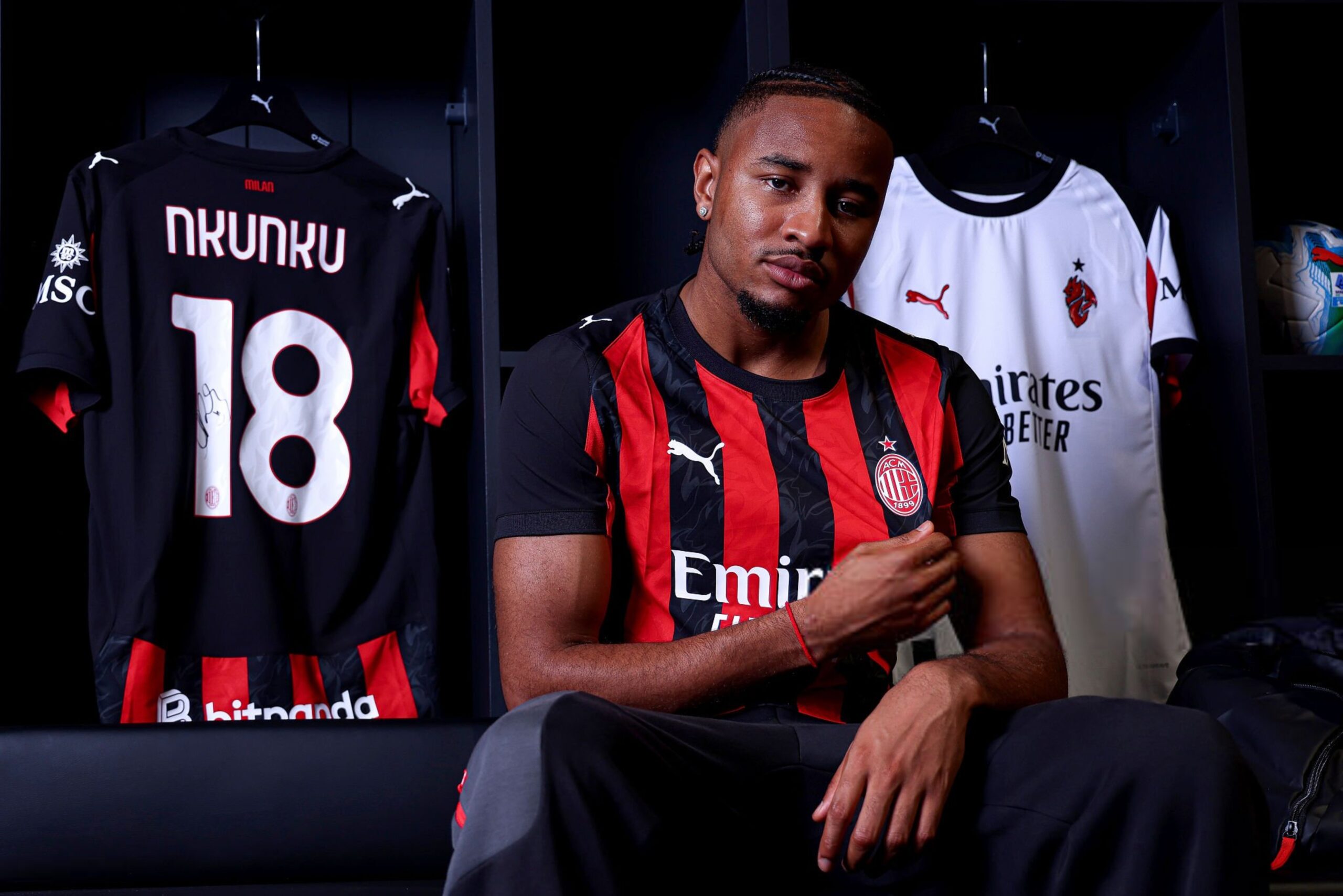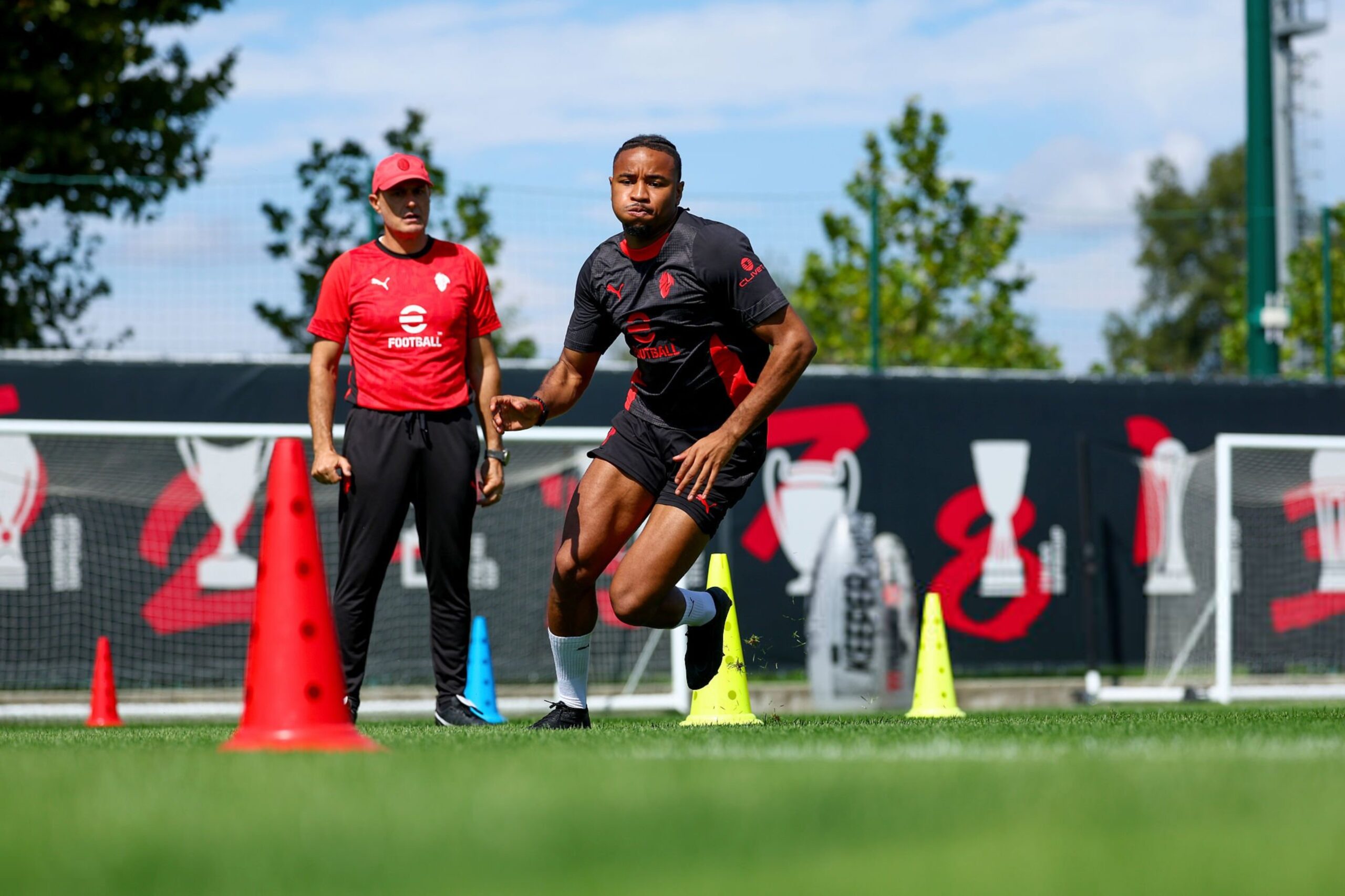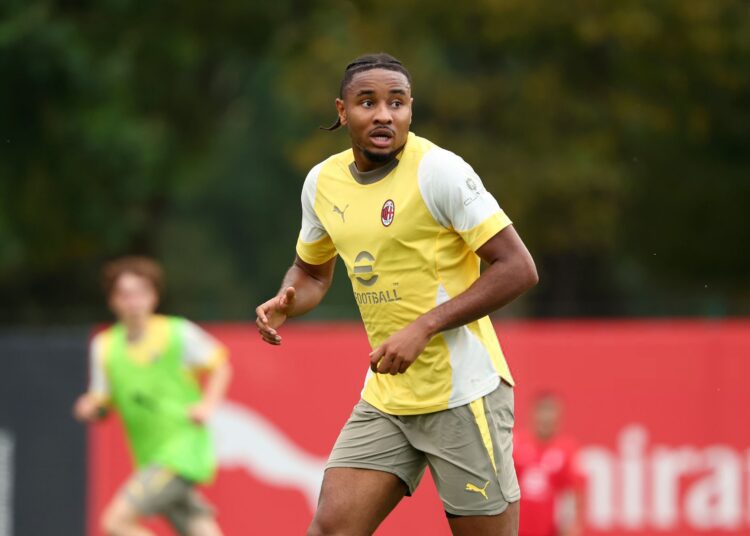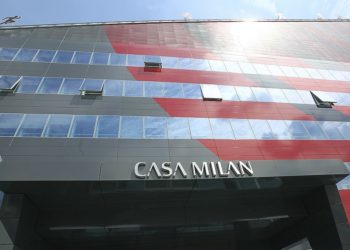If Milan fans had been told just a couple of years ago that their team’s forward would be Christopher Nkunku, they probably would have jumped for joy. The Frenchman was once one of the most exciting and prolific players in Europe, a force capable of playing any attacking role without losing effectiveness. Today, however, it is 2025, almost 2026, a new season has started, and unfortunately the memory of that player feels distant. Around the signing of the former PSG and Leipzig forward by the Rossoneri, there is still some optimism but not a lot.
In theory, there would be no doubt: the best version of Nkunku could be one of the top players in Serie A, if not the very best alongside Rafael Leao. An electric winger in one-on-one situations against Italian full-backs and a slippery second striker for defenders... A player who could make a difference both as a support striker and slightly wider.
A fragment of the best Nkunku, he knows how to move into tight spaces as he is too quick and precise against defenses (just watch his goal against Bournemouth, which is perhaps the most memorable moment he will leave at Chelsea).
If you’re planning to watch Milan games this season to see whether Nkunku can finally shine in red and black colours and you’re feeling lucky while you do, you might want to head over to ufabet. The platform, in fact, is more than just a football betting site: it’s a direct platform from the parent company and it offers a full range of sports betting, live casino, slots, lotteries, and even e-sports. With over 15 years of development, fast and secure transactions, and international certification, it positions itself as a safe and transparent space for fans who want to mix the adrenaline of watching high-stakes football matches with the thrill of betting on it.
As of today, though, it should be noted that Christopher Nkunku’s arrival raises some uncertainties: economic, sporting, and strategic.

AC Milan have reportedly paid around 42 million euros for the Frenchman, which according to Transfermarkt should make him the second-most expensive signing in club history (alongside Leonardo Bonucci). While the details are not fully known, reaching such an agreement raises a question: could that money have been spent differently or at another point in the transfer market?
Nkunku injury issues:
The biggest risk in this investment comes from injuries, the same factor that officially ended the deal for Victor Boniface: Nkunku’s fitness. The last two years have not been reassuring.
Failing to shine in a dysfunctional club like Chelsea is not new, and it is not a fault, nor is it unusual in the harsh environment of the Premier League. Judging a player solely by success in England is unfair; many talents have revived careers in Germany, Spain, and Italy. Nkunku’s struggles were less about quality and more about physical setbacks in his first year.
Even his final season at RB Leipzig was marked by injuries that caused him to miss over 20 games across club and country. A particularly serious one was the rupture of the collateral ligament in his left knee, which made him miss the World Cup in Qatar. Nkunku entered the tournament as one of France’s fittest talents, replaced by Kolo Muani, with all the consequences that followed in the final against Argentina.
Christo Nkunku returned to good form and impressed in pre-season at Chelsea. But in early August 2023, another knee injury struck, sidelining him for the first four months of the season.
After a brief recovery around the new year, a major setback came at the end of February. Substituted into the League Cup final against Liverpool, he showed new hip problems that kept him out until late May. Pochettino’s staff had not noticed: “We realized it after the game. It’s difficult for him. In pre-season, he seemed to fly on the pitch.”
Chelsea finished sixth, missing European competition. Todd Boehly’s club dismissed Pochettino and started another rebuild under Maresca. Nkunku could have had a fresh start, but with a new coach, tactical doubts added to injury concerns.
How can Nkunku play at AC Milan under coach Massimiliano Allegri?
Chelsea’s tactician, Enzo Maresca, wanted a squad reflecting his style. With a long roster and a new project, he focused on reliable players to shape the team. Fringe players often played in the Conference League, and Nkunku, after starting almost all games, got injured just before the final against Betis.
Being marginal at Chelsea is not automatically a problem: Renato Veiga had a similar situation and had positive months at Juventus, for example. But Maresca’s reluctance also reflected Nkunku’s difficult role.
Nkunku is a unique player. Known as a second striker, he started as a central midfielder at Paris Saint-Germain. He excels in tight spaces and central areas but can dribble and cut inside like a winger. He rarely played wide, and his drive toward goal made him unsuitable for the flank. His best performances came as an attacking midfielder or second striker, usually alongside a true forward (like André Silva at RB Leipzig). Playing with two strikers was not in Maresca’s plans; he preferred Nico Jackson and used Delap and João Pedro in the FIFA Club World Cup.
Nkunku (who started three times in the Club World Cup and scored the decisive goal against Benfica in the round of 16) was deployed as a central attacking midfielder behind the striker or as a wide winger, often waiting and attacking statically, far from his dynamic Leipzig role.
At AC Milan, he definitely found a different system, but questions about his ideal position remain. He prefers to start from the left. So, here is the question were 42 million euros spent to bring an alternative to Rafael Leao?
If Nkunku and Leao played together, they could share space and moments on the left, which might imply Nkunku as a chosen number 9. What about after Milan sought very different profiles like Dusan Vlahovic and Conrad Harder, emphasizing a striker with strong presence in the box? Nkunku thrives when space is created for him and he can arrive in the box unexpectedly. Does this mean Milan’s attacking work is incomplete?
Allegri’s tactical plan also matters. He started with 3-5-2 and Leão as a “false nine” with Pulisic. Nkunku complicates matters. Will Pulisic move wide? Will Allegri switch to a back four with a mobile front three of Leão, Pulisic, and Nkunku? Fitting all pieces will not be easy.
Conclusion:
Christopher Nkunku is a signing hard to assess right now. AC Milan fans hope his injuries are behind him. Only then, and in the right context, sharing space with Rafael Leao or playing alongside a true striker (Leao himself could play as a striker as well) could the Frenchman turn out to be a great signing.
















